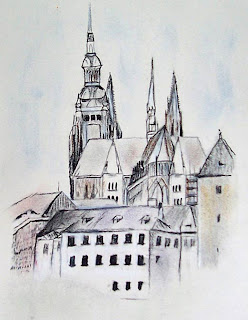Central to their approach was the belief that linguistic theory should go beyond the mere description of linguistic structure to explain the functions fulfilled by linguistic forms. For example, a great many sentences build on information which is already known (theme) and provide some new information on that topic (rheme). And unless an unusual stylistic effect is required, the functional requirements of the sentence are fulfilled grammatically when the syntax allows the theme to precede the rheme.
Trubetzkoy gives a central role to the phoneme. Trubetzkoy's chief contributions to linguistics lie in the domain of phonology, in particular in analyses of the phonological systems of individual languages and in the search for general and universal phonological laws. His magnum opus, Grundzüge der Phonologie (Principles of Phonology), was issued posthumously. In this book he famously defined the phoneme as the smallest distinctive unit within the structure of a given language. This work was crucial in establishing phonology as a discipline separate from phonetics.
Another manifestation of the Prague school attitude that language is a tool which has a job to do is the fact that members of that School were much preoccupied with the aesthetic, literary aspects of language use.
André Martinet set out his theories of diachronic phonology in his Economie des Changements Phonétiques(1955). One of the key concepts in Martinet´s account of sound change is that of the functional yield of a phonological opposition. the functional yield of an opposition is, the amount work it does in distinguishing utterances which are other wise alike.
Roman Osipovich Jakobson was a scholar of Russia. He developed, with Nikolai Trubetzkoy, techniques for the analysis of sound systems in languages, inaugurating the discipline of phonology. He went on to apply the same techniques of analysis to syntax and morphology, and controversially proposed that they be extended to semantics.
Activity
http://www.educaplay.com/es/recursoseducativos/645100/the_school_of_prague.htm



No hay comentarios:
Publicar un comentario